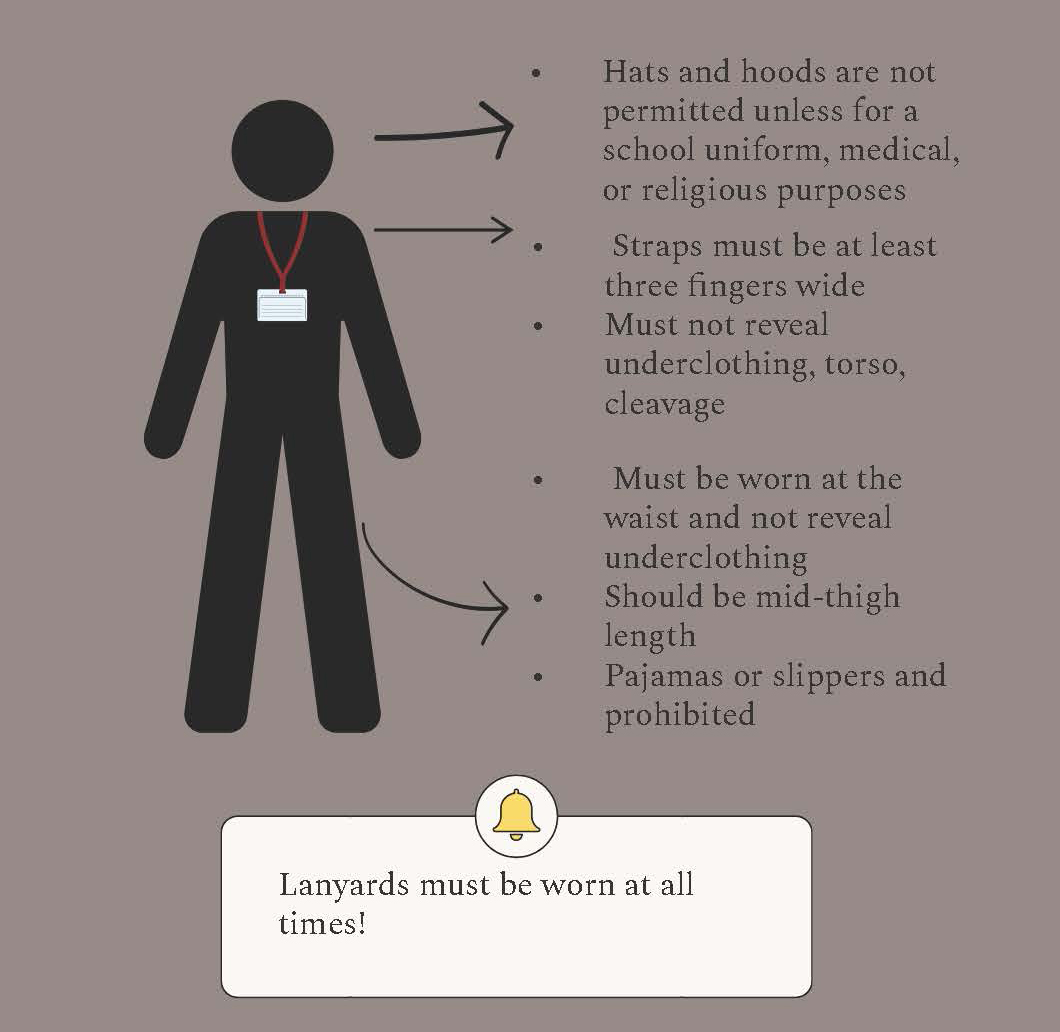Since taking office in January, President Donald Trump has issued multiple executive orders regarding Diversity, Equity and Inclusion programs in education. On April 3, the Department of Education issued an order requiring all states and school districts to certify the removal of all DEI programs in order to continue receiving federal funding.
Federal funding is essential to CFISD because although Cy Woods is not a Title I school, there are more than 50 in the district. Title I schools use federal funds to increase the opportunities for underprivileged students to be on the same level as their peers.
“Federal financial assistance is a privilege, not a right; when state education commissioners accept federal funds, they agree to abide by federal antidiscrimination requirements,” Acting Assistant Secretary for Civil Rights Craig Trainor said in the Education Department’s press release. “Unfortunately, we have seen too many schools flout or outright violate these obligations, including by using DEI programs to discriminate against one group of Americans to favor another based on identity characteristics in clear violation of Title VI.”
DEI initiatives include accessibility measures for people with disabilities, pay equality between genders, anti-discriminatory training, equal hiring opportunities for all races, anti-discriminatory practices regarding sexual orientation and practices intended to ensure fair treatment.
The Department of Education issued the certification requirement soon after Trump’s order on Jan. 20, which said that DEI programs need to be removed from every activity involved with the federal government.
The orders have resulted in changes at academic institutions across all grade levels. The Department of Defense established the “Restoring America’s Fighting Force Task Force” to make sure that all DEI aspects are immediately removed, including the teaching of “radical ideologies related to systemic racism and gender fluidity.”
“No DoD Component will establish sex-based, race-based, or ethnicity-based goals for organizational composition, academic admission, or career fields,” the Department of Defense said. “No element within DoD will provide instruction on Critical Race Theory (CRT), DEI, or gender ideology as part of a curriculum or for purposes of workforce training; the U.S. Service Academies and other defense academic institutions shall teach that America and its founding documents remain the most powerful force for good in human history.”
The U.S. Naval Academy has already borne witness to the impacts of anti-DEI policies. Its library has removed nearly 400 books since the order, including books on feminism, the Civil Rights Movement, the Holocaust and other books that help understand historical movements. In addition, the U.S. Military Academy ended student-led clubs that focused on race, gender or sexuality.
As of press time, 19 states have sued to block the Education Department’s directive and threat to withhold funding.
Local impact
In addition to the federal directives, there is a K-!2 bill pending in the Texas House after making it through the Senate. It says that parents must give written consent before their kids can participate in any club, and it provides guidelines on what clubs are permissible.
“A school district or open-enrollment charter school staff member may serve as the sponsor of a student club based on race, sex, color, or ethnicity in a supervisory capacity only and may not provide instruction on any topic in that capacity,” Senate Bill 12 says. In addition, it says, “A school district or open-enrollment charter school may not authorize or sponsor a student club based on sexual orientation or gender identity.”
These policies regarding schools could put certain programs in jeopardy. Districts must comply with the federal mandate or their Title I funding could be withheld. According to the Office for Civil Rights, a program does not need to outright use terms like “Diversity, Equity or Inclusion” to constitute illegal discrimination or using “a student’s race as a ‘stereotype or negative.’” Its assessment depends on the facts of each case.
“Schools with programs focused on interests in particular cultures, heritages, and areas of the world would not in and of themselves violate Title VI, assuming they are open to all students regardless of race,” the office wrote in an FAQ. “However, schools may not sponsor programming that creates a hostile environment based on race for students who do participate.”
The executive order does not specifically state what programs are permitted and not permitted. Anyone who feels that a school is participating in “discriminatory conduct” is able to report their complaint to the Department of Education’s Office for Civil Rights.
In response to the executive orders and defense department guidelines, DoD K-12 schools have cut back on groups that include racial and gender identity elements.
“These groups offer a space to support and empower individuals who may face unique challenges in their respective fields,” Women in STEM sponsor Allison Kippes said. “By fostering a sense of community, they can provide mentorship, encouragement, and resources for those who may not always have the same opportunities.”
Because WI-STEM focuses specifically on one group, it is one of the many clubs that could be at risk.
“We would welcome any Wildcat regardless of gender to our club meetings,” Kippes said. “I think it is just as important for everyone to see the statistics of how many women make up the field, plus they can learn about a STEM field they are interested in, scholarship opportunities, and explore different STEM fields with fun activities.”
Not only are clubs that help break gender barriers on the line, but so are clubs that highlight specific races and ethnicities. For example, the Asian Pacific American Culture Club has the potential to be considered out of compliance; junior Danielle Browne, who has been a part of APACC since her freshman year, said that the club has helped her realize she is not alone as someone who is half-Filipino.
“APACC allowed the Asian and Pacific Islander community to join together and recognize how many of us there are against a 3,000+ student school,” Browne said. “It’s in my best belief that most of us have grown up with the same stereotypes, as other culture club attendees have, so we recognize that we are not alone in the falseness or truth of those stereotypes.”
Browne said that anyone is welcome to the club meetings, even if they do not fit the target group. She said that the club gives people an understanding of other cultures and teaches respect.
“A growing community of students would not have a place to connect with people of the same background or interests [if clubs like this were removed,]” Browne said. “We wouldn’t be outcasts, but rather try to fit in with the majority group and less of the minority, taking away our individuality; everyone is welcome, but our minority turns into the majority when meetings take place.”
In response to a request for comment about the potential impact to organizations, the district said, “CFISD remains committed to complying with all state and federal laws, and executive orders. We will rely on guidance from our legal services department to determine if this executive order has any impact on CFISD operations.”






